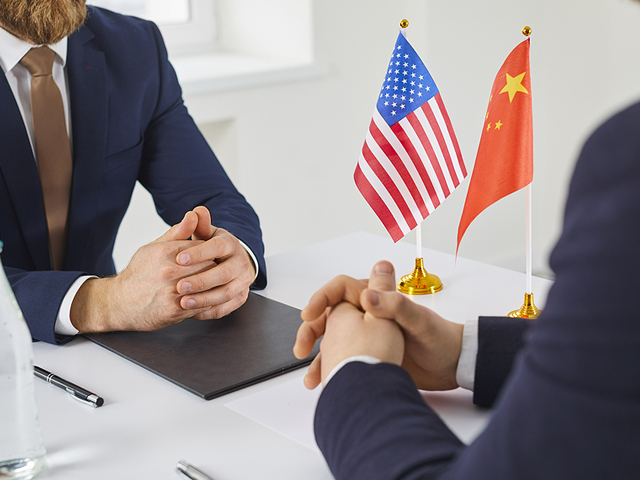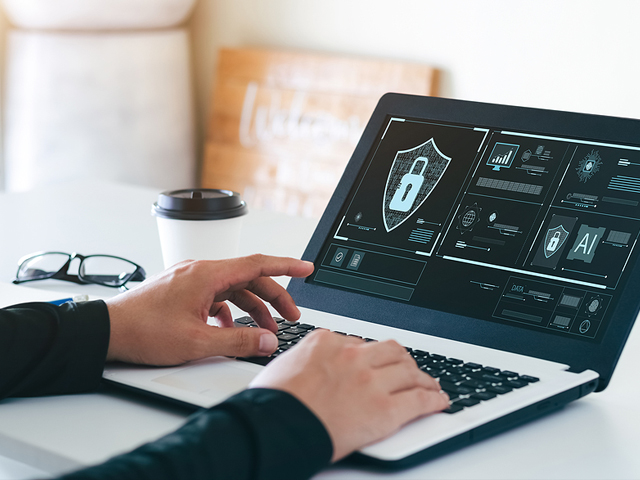
There are certain careers that can help you make a positive impact on the world. People who have a certain interest in understanding various cultures and other nations may find that becoming part of the U.S. Foreign Service as a diplomat can be an exciting career.
Did you know that there are over 13K employees currently in the United States Foreign Service? They are dedicated to representing the country overseas. Working in over 270 embassies and consulates around the world, these professionals are involved in numerous diplomatic missions to support prosperity and peace while advancing the interests of the USA.
Becoming a diplomat can be a challenging endeavor. It is essential to understand what the journey looks like prior to taking the first step. To help you determine if this is a wise career choice for you, here is a peek at the process for becoming a Foreign Service Officer and a look at what diplomats do.
The Role of a Diplomat
What exactly are a diplomat's responsibilities and what do they do? Diplomats are also called FSOs or Foreign Service Officers. They work to protect their nation's affairs overseas including political, cultural, social, and economic interests. They establish and maintain international relationships that are aligned with economics, peacekeeping, trade, war, human rights, and environmental issues.
Depending on their rank, numerous factors, and career path, it can be difficult to understand the responsibilities of a diplomat. Three diplomatic rankings were created in the Vienna Convention on Diplomatic Relations in 1961. These are essentially job titles that diplomats can hold. They are chargé d’affaires, ministers and ambassadors.
Currently, the ranking of a minister is not in use and the only relevant titles are chargé d’affaires and ambassador. Another rank of "envoy," was utilized prior to the 1961 convention. Diplomats in the USA may choose to pursue five unique career paths. Each career focus specializes in a different work area discussed below:
Political Officers
Political Officers: This team plays a vital role in advising American policy by navigating the political realm within their host countries.
Consular Officers: This team works to evacuate American citizens from places during a crisis, facilitates adoptions and combats human trafficking and fraud.
Public Diplomacy Officers
Public Diplomacy Officers: These officers work with a vast group of individuals within their host country including opinion leaders, academics, non-governmental groups, think tanks and government groups. Their goal is to promote support for the USA and its policies while influencing the next generation of leadership.
Management Officers
Management Officers: This group is responsible for managing the daily operations within their embassies.
Economic Officers
Economic Officers: Work with agencies and foreign governments to establish policies related to energy, economic issues, science, environmental problems and technology.
What are Diplomats Qualities and Required Skills?
There are 13 specific dimensions that reflect the personal qualities, abilities and skills that are necessary to obtain work within the Foreign Service. To be an effective diplomat, candidates need to possess the following qualities that demonstrate their ability to respect other cultures and adapt as they work to further the United States' interests. The following is a list of the 13 dimensions:
- Cultural Adaptability
- Teamwork
- Good Judgment
- Written Communication
- Composure
- Information Analysis & Integration
- Oral Communication
- Quantitative Analysis
- Resourcefulness
- Integrity & Objectivity
- Leadership & Initiative
- Motivation & Experience
- Organizing & Planning
The above list is considered to be "soft" skills. Diplomats additionally require domain-specific skills related to the career path they want to take. Individuals interested in working as an economic officer need to have solid information gathering skills, a strong understanding of economic principles, and the ability to create essential reports that can inform foreign economic policies.
Steps For Becoming a Diplomat
To be chosen as a diplomat, candidates need to have the correct experience, education, and skills. Qualified individuals need to go through a stringent selection process before they are appointed to a position.
Education Requirements
Interestingly, there are no particular requirements for this career. However, a graduate degree is recommended in a related study area to build the vital skills required to be successful in this job. There are numerous study fields that can prove useful since there are so many different career paths. A deep understanding of international diplomacy and relations is essential for every candidate. Individuals can decide to focus their studies on a variety of fields to attain their goals
Some people decide to earn their master's degree in international relations and global studies. This enables students to understand the complex relationships that occur between nations. These relationships affect a wide variety of subjects ranging from law to security and policy to economics. There are programs available to offer concentrations in different focus areas to enable students to broaden their perspectives.
Excellent Language Skills
Diplomats must be capable of learning new languages since they commonly work in countries that don't speak English. Becoming fluent in two or three languages demonstrates an appreciation for cultures beyond one's own and cements the desire for continuous challenges and learning.
Selection Process
Those who want to become diplomats for the USA face a rigorous selection process. It is geared towards identifying individuals who have the skills to serve and represent the nation's interests overseas. It can be difficult to undertake this challenge, so it is essential to understand what to expect before undertaking this career choice.
If you want to be considered for a diplomat role, you will be required to pick a career focus and register for the FSOT or the Foreign Service Officer Test. After you pass the written section of the FSOT you will have to take an oral assessment and also submit a personal narrative to the Qualifications Evaluation Panel.
Once these steps are finished, there will be security and medical clearances. Your completed final will be examined by the Suitability Review Panel.
Lastly, applicants that complete the above steps successfully will be placed on the "Register," a rank-ordered candidate list that is utilized to fill open job postings. Becoming an appointed FSO is an extremely selective process.
Accumulating Relevant Experience
There are different ways to gain relevant experience including studying abroad, co-ops, and internships. These are great opportunities to help you stand out during the selection process and help you grow your skills. Having an innate understanding of international relations and a broad cultural awareness is vital to your success.
Accessing a variety of opportunities to help create these kinds of experiences is important for future diplomats. There are numerous internship options offered by The Department of State to help those who are considering starting a career in foreign affairs. Undergraduate, high school and graduate students can each access these programs by applying for a spot to enjoy real-life experiences in the field.
A different way to gain experience is by picking a graduate program that provides experiential learning options and study abroad choices.
How Many Applicants Make It?
Approximately 17K candidates complete the FSOT each year. Roughly 1000 of them are invited to take part in the oral assessment every year. People who get accepted to become entry-level officers have extreme professionalism, outstanding technical skills, and exceptional work history.
Even though there are many more applicants than there are potential FSO positions, note that there are numerous other career options available for international relations. Are you passionate about being a global citizen? Being a diplomat is an excellent way to utilize your passions at your job. There are many different career paths to explore before you decide which one will be your best option.
Preparing for a Global Career
If you are searching for a career that can help you have a global impact, consider becoming a diplomat for a career that is rewarding and challenging. Aspiring Foreign Service Officers can start their career starting to prepare early to gain the experience and the skills they require for success.
If you are hoping for a career that is globally focused, studying diplomacy and international relations are excellent options. Students have the opportunity to gain exposure to the expansive issues happening in the world today. Choosing a program that integrates learning potential within the courses allows students to gain real-world experience. This factor is exceptionally valuable in the selection process to become an FSO.











